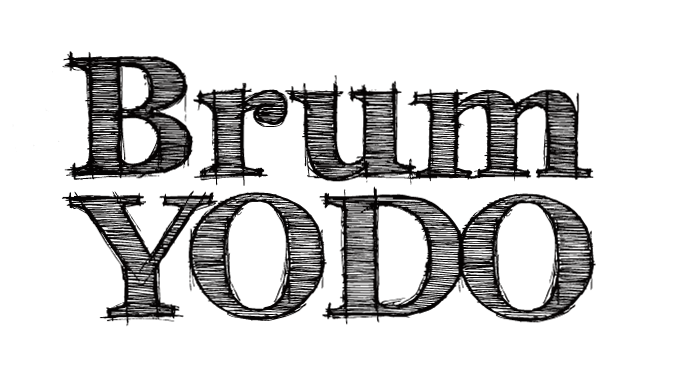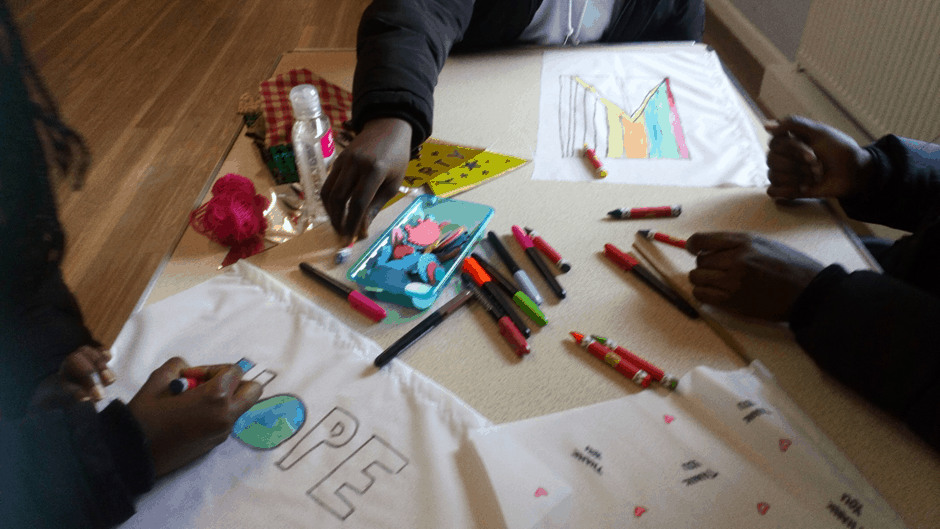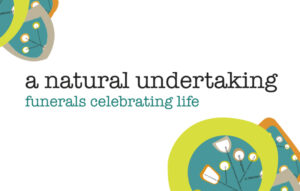Schoolchildren and elderly residents came together in a unique craft and writing project which helped the youngsters gain insight into the lives of older people. The project was inspired by the artwork In Memoriam by Luke Jerram, an outdoors installation comprising 120 flags made of NHS bedsheets created as a commemoration to people who have died from Covid-19.
The young people from St John’s and St Peter’s Church in Ladywood in Birmingham created their own flags and took part in discussions based on diaries written by residents of care villages. The session was facilitated by Birmingham community interest company BrumYODO as part of a series of events aiming to encourage people of all ages to discuss death, dying and grief by taking part in flag-making activities.
Aged 12-16, the young people looked at photos of the artwork, considered their own experiences during the pandemic and drew on diaries written by older people living in residential villages to gain a different perspective and develop their understanding before making their own flags. Some then went on to be filmed reading short excerpts from the diaries.
These diaries, created by people living in retirement villages across England during Covid, gave insights into their experiences and feelings. The Compassionate Communities for Extraordinary Circumstances: Using diaries to capture bereavement support during the Covid-19 pandemic, was a project carried out by the charity Cruse Bereavement Care, the ExtraCare Charitable Trust, together with researchers at the University of Bristol and Aston University. Between May and September Cruse volunteers offering bereavement support to clients across the UK and Volunteer Bereavement Supporters offering peer support to fellow residents within their ExtraCare retirement village communities in England, kept diaries, recording their experiences and feelings.
The young people chose the words of residents that resonated with them, delivering short video clips that give insight into loss, bereavement, support and resilience. 15 year-old Elilta drew on the words of elderly residents Sonia and Hazel describing the extent of loss and the experience of grief and bereavement.
16 year-old Evans and one of the youth leaders Nat selected the words of residents Rita and Sonia describing the impact of restrictions on daily activities, seeing families and attending funerals.
Nat read Sonia’s words highlighting how although Covid had put a big stop in all our lives, preventing friendships, healthy lifestyles, holidays and celebrations and leading to loneliness and isolation, people found their inner strengths and resources to be able to cope and to sit alongside others, also struggling.
In reading and sharing the words from the diaries these young people were sitting alongside those from a different generation. Although many years divide them, they recognised the shared experiences, emotions and impact and gained insight into death and bereavement.
The pandemic has posed unprecedented challenges to those of every age, but it has led to a greater willingness to talk about grief, loss and bereavement as well as spurring creativity, sensitivity and thoughtfulness. These diarists and young people show us the importance of listening and sharing, of having conversations about subjects we find difficult and of intergenerational connection.
Written by Debbie Kerslake, BrumYODO director
[i] Rumble,H., West,K., Cameron,A., Shaw,R., Roleston, C., Wilson, E., Spellman,M. Compassionate Communities for Extraordinary Circumstances: Using diaries to capture bereavement support during the Covid-19 pandemic 2020





